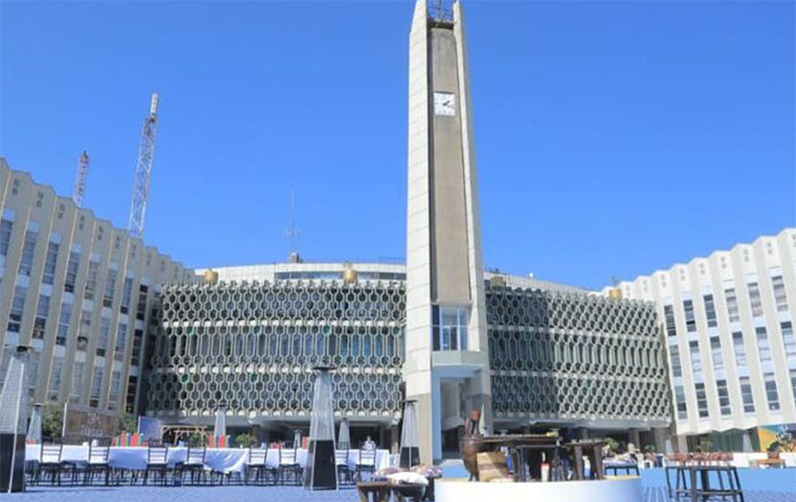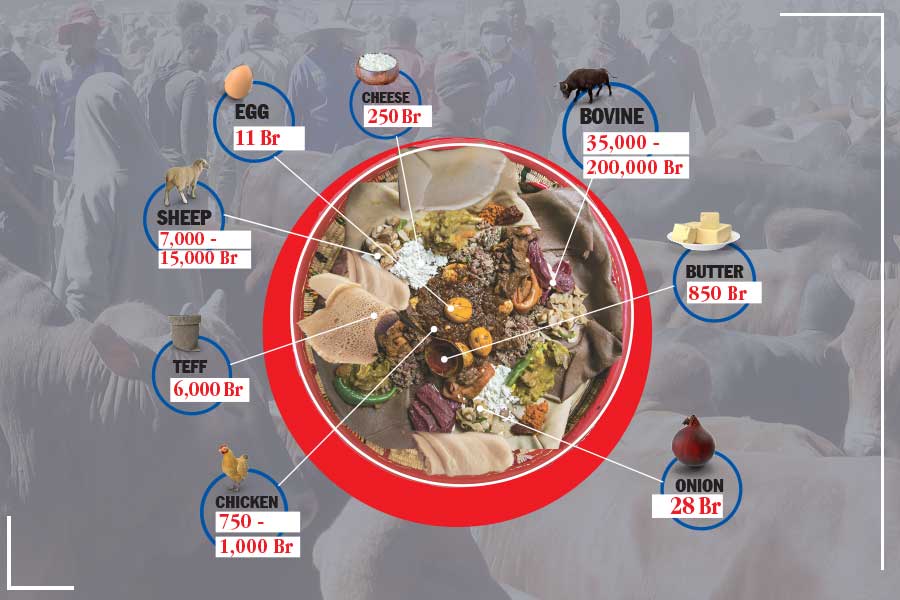
Viewpoints | Oct 20,2024
Oct 26 , 2024
By Mariana Mazzucato , Vera Songwe
As finance and climate ministers gather in Washington last week for the annual meetings of the International Monetary Fund (IMF) and the World Bank Group, they should focus on the need for new economic development pathways that are compatible with the Paris climate agreement's goal of limiting global warming to 1.5° Celsius.
The final report of the Group of Experts to the G20 Taskforce for a Global Mobilisation Against Climate Change (which we co-chair) calls on the G20, whose members account for around 85pc of world GDP, to advance green industrial strategies supported by comprehensive financial reforms. Development should be oriented around nationally determined contributions (NDCs) – the Paris Agreement's term for countries' emissions-reduction plans – and governed in a way that emphasises equity within and between countries.
Without a change of course, global warming is projected to exceed three degree Celsius, leading to a loss of at least 18pc of global GDP by 2050. The dominant models of economic growth are pushing the planet toward collapse, with potentially irreversible consequences for people and economies. Since G20 member states are responsible for 80pc of current and past greenhouse gas (GHG) emissions, they should be accountable for 80pc of the emissions reductions needed to achieve the goal.
The climate crisis is a direct result of economic choices. To change the direction of economic growth so that it respects planetary boundaries, green industrial strategies should go beyond picking favoured sectors or technologies. If oriented around achieving "missions" like the NDCs, they can catalyse innovation and investment across many different sectors, thus driving an economy-wide transformation.
Instead of subsidising specific sectors with few strings attached, governments should seek to open new market opportunities for willing businesses of all sizes, from all sectors. In doing so, they should hold these businesses to a high standard about GHG emissions, wages, support for workers through structural economic changes, and reinvestment of profits in productive activities like research and development.
Crucially, to accelerate the transformation we need, governments should repurpose existing fossil fuel subsidies (which continue to rise), and make public support for fossil-fuel-intensive industries contingent on decarbonisation. Implementing green industrial strategies should not be a task solely for ministries of industry or climate. To support NDC targets, whole-of-government engagement and a redesign of key institutions and tools — not least public procurement and public finance — are needed.
The green industrial strategy also requires a global lens. We need new global governance structures that can focus on equity and ensure that all countries benefit from green growth. Since the climate crisis is a global challenge, tackling it requires global collaboration – including through technology- and knowledge-transfer agreements and support for building green manufacturing capacity in low- and middle-income countries.
Green finance must be made more accessible globally. Wealthier countries – especially those that contributed more to historic GHG emissions – should use their greater financial means to help scale up green finance and ensure that it is designed to be affordable, patient (long-term), and risk-tolerant. Without such support, low- and middle-income countries will remain fiscally constrained, inhibiting their ability to invest in green industrial strategies or climate-change mitigation and adaptation. They will be forced into a vicious cycle of increasing climate vulnerability and deteriorating public finances.
The current disparity in the global allocation of green finance is stark. Since 2021, high-income countries and China have attracted over 90pc of new clean-energy investments, while borrowing costs for low- and middle-income countries have continued to rise. Though these countries are the least responsible for GHG emissions, they are burdened with a "climate risk premium" that inflates the cost of finance.
Thus, the G20 should champion expanded long-term concessional loans, grants, and debt and liquidity relief so that all countries can pursue green growth without increasing their debt burdens. It should also support existing efforts – such as the Bridgetown Initiative – to achieve a more equitable global financial architecture. Building on the work of Finance in Common, national development banks should be empowered to scale up patient, NDC-aligned capital, including through strengthened collaboration with multilateral development banks. These institutions are well positioned to direct green finance, drawing on their local knowledge, public mandates, and potential to crowd in private capital that would otherwise shy away from riskier projects.
Finally, a stable financial sector considering systemic climate risks is crucial for accelerating and sustaining the green transition. The G20 can reinforce the importance of prudential regulators adopting more robust interoperable taxonomies to strengthen disclosures, collect better data, and improve predictive climate models.
Similarly, central banks have a key role to play in accounting for climate-related financial risks and supporting conditions that encourage more private finance to flow toward green investments – and discourage financial flows to carbon-intensive projects. Doing so would not be a departure from central banks' existing mandates. In fact, "market neutrality" can have the perverse effect of creating favourable financing conditions for carbon-intensive activities that ultimately threaten macroeconomic and financial stability.
We call on the G20 under Brazil's presidency to lead the way toward pathways for new economic development, and for the forthcoming South African G20 presidency to take this agenda forward. Green growth is not only possible; it is imperative.
PUBLISHED ON
Oct 26,2024 [ VOL
25 , NO
1278]

Viewpoints | Oct 20,2024

Commentaries | Feb 08,2020

Radar | Aug 26,2023

Radar | Jul 17,2022

View From Arada | Jun 21,2025

Fortune News | Jul 09,2022

Fortune News | Jan 07,2023

Fortune News | Jul 13,2024

Fortune News | May 27,2023

Radar | Feb 24,2024

Photo Gallery | 180398 Views | May 06,2019

Photo Gallery | 170599 Views | Apr 26,2019

Photo Gallery | 161643 Views | Oct 06,2021

My Opinion | 137278 Views | Aug 14,2021

Dec 22 , 2024 . By TIZITA SHEWAFERAW
Charged with transforming colossal state-owned enterprises into modern and competitiv...

Aug 18 , 2024 . By AKSAH ITALO
Although predictable Yonas Zerihun's job in the ride-hailing service is not immune to...

Jul 28 , 2024 . By TIZITA SHEWAFERAW
Unhabitual, perhaps too many, Samuel Gebreyohannes, 38, used to occasionally enjoy a couple of beers at breakfast. However, he recently swit...

Jul 13 , 2024 . By AKSAH ITALO
Investors who rely on tractors, trucks, and field vehicles for commuting, transporting commodities, and f...

Nov 1 , 2025
The National Bank of Ethiopia (NBE) issued a statement two weeks ago that appeared to...

Oct 25 , 2025
The regulatory machinery is on overdrive. In only two years, no fewer than 35 new pro...

Oct 18 , 2025
The political establishment, notably the ruling party and its top brass, has become p...

Oct 11 , 2025
Ladislas Farago, a roving Associated Press (AP) correspondent, arrived in Ethiopia in...

Nov 2 , 2025
The National Bank of Ethiopia (NBE) has scrapped the credit-growth ceiling that had s...

Nov 2 , 2025 . By SURAFEL MULUGETA
The burgeoning data mining industry is struggling with mounting concerns following th...

Nov 2 , 2025 . By YITBAREK GETACHEW
Berhan Bank has chosen a different route in its pursuit of a new headquarters, opting for a transitional building instea...

Nov 2 , 2025 . By BEZAWIT HULUAGER
Nib International Bank S.C. has found itself at the epicentre of a severe governance...